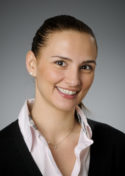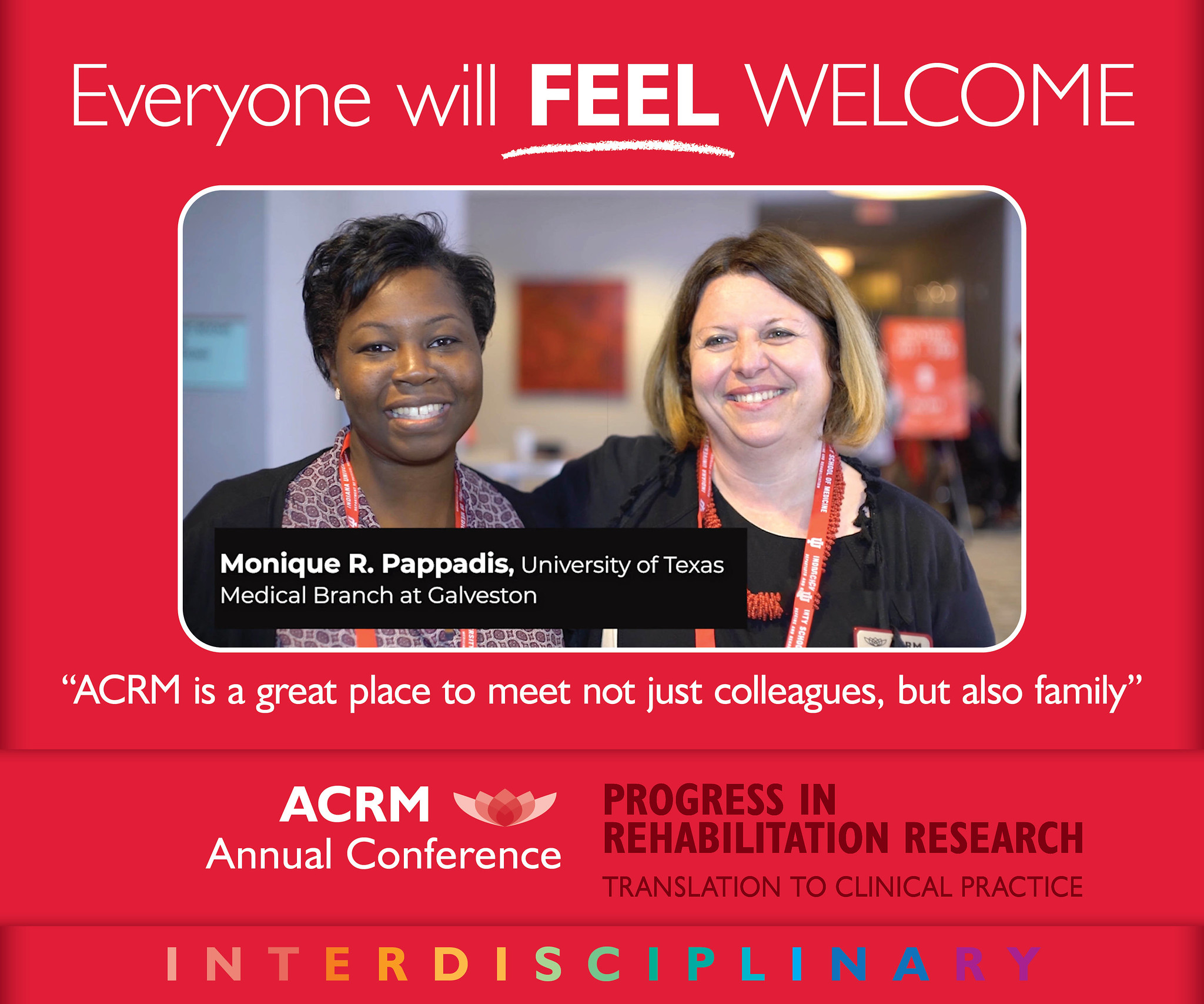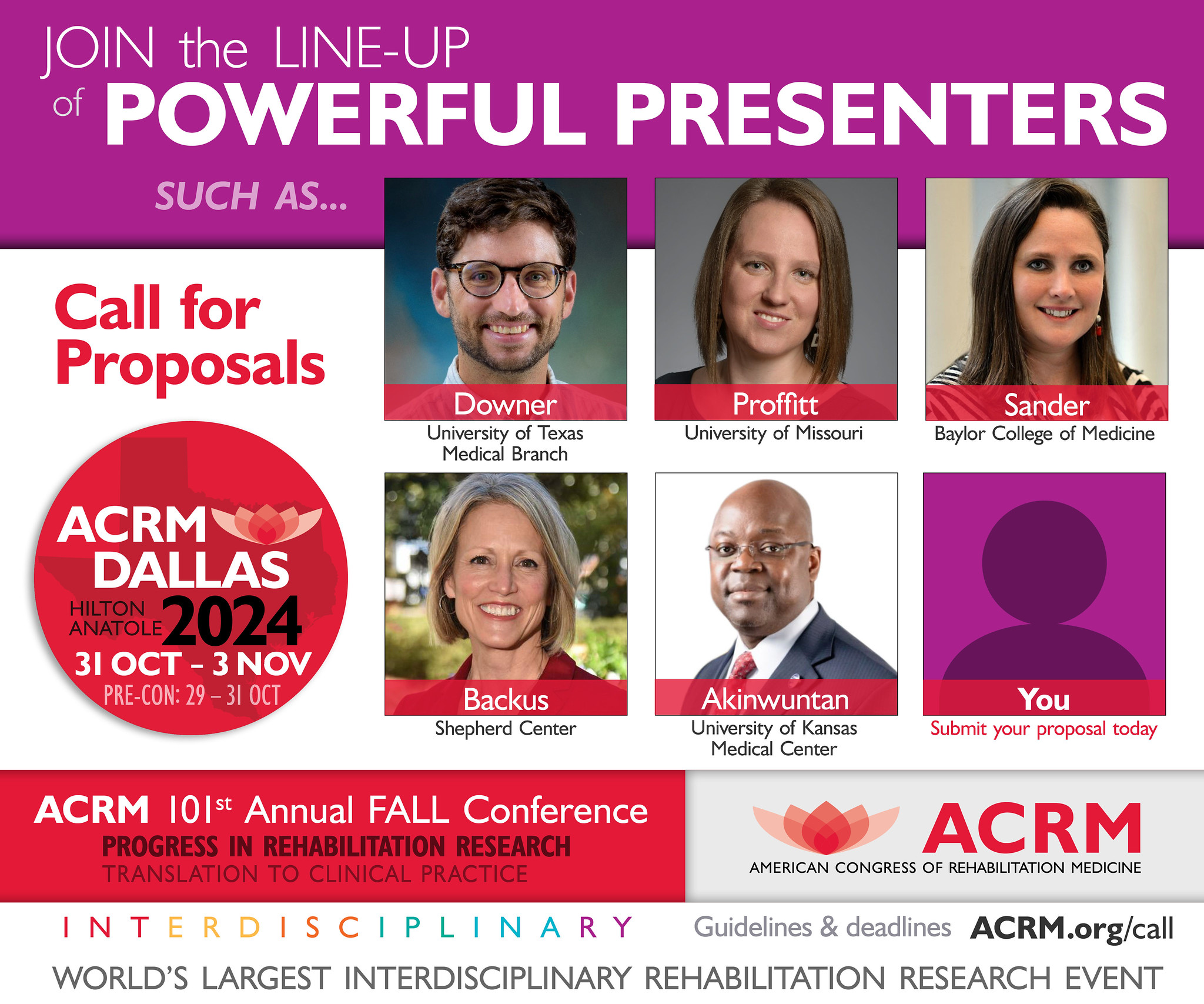Get to know and learn from your peers…
This new Research Spotlight column is intended to help you get to know the work of ACRM members from all career stages and disciplines and provide insight about the different career paths people take. Here, find words of wisdom about how to best succeed as you navigate your career path.
We want to include you in one of our upcoming newsletters, so don’t be shy — contact Alison Cogan about this opportunity.
INTRODUCING Anastasia Zarkou, PT, PhD
Post-doctoral Fellow, Spinal Cord Injury Research Lab
Shepherd Center
Dr. Zarkou is a new ACRM member! She attended the Early Career Development Course in Atlanta this year, and is active in the American Physical Therapy Association.
What’s your current research focus or area you are most excited about?
My academic and clinical background is in biomechanics and physical therapy. This has offered me a deep appreciation and comprehensive understanding of the need to design training interventions that are novel, non-invasive, low-cost, simple to administer, and highly translational to clinical practice, with the overall goal of assisting people with disabilities. In my current position as a research fellow at the Shepherd Center, I am really interested in investigating therapeutic methods that enhance neural reorganization to promote motor performance in individuals with spinal cord injury. Specifically, I would like to investigate how stochastic resonance (SR) stimulation, a subsensory type of random noise, can modulate neural excitability when combined with therapeutic interventions focused on improving upper extremity and walking function.
What prompted/motivated you to choose that area?
To date, I have had the privilege of working in demanding research environments, collaborating with scientists from diverse backgrounds, and treating individuals with neurological disorders of various age groups. These experiences gave me a better understanding of the challenges those individuals face in their daily lives and helped me develop a genuine interest in assisting them by delineating the underlying neural mechanisms associated with poor motor performance and functional activity. My dissertation work focused on identifying lower extremity somatosensory deficits in children with cerebral palsy and describing their relationship with balance and motor function. Additionally, SR stimulation was used to enhance somatosensation and ameliorate balance impairments in this population. Witnessing firsthand the potentials of combined intervention protocols in research settings, I realized the importance of translating research evidence in clinical practice. Therefore, I decided to accept a post-doctoral position at the Shepherd Center – a state of the art rehabilitation hospital supportive of pragmatic studies in which clinicians and researchers work together to determine and deliver the most effective rehabilitation to their patients.
How did you come to be in your current role and what are your long-term career goals?
Currently, I am a postdoctoral fellow in the Spinal Cord Injury Research Lab at the Shepherd Center under the supervision of Dr. Field-Fote. My academic & clinical experience as an exercise scientist and physical therapist (trained in Greece) stimulated my research curiosity and led me to continue my studies by pursuing a doctoral degree in the USA. I completed my PhD in biomechanics and movement science (with a concentration in applied physiology) at the University of Delaware in August 2017, and arrived at Shepherd in September of this year. Long term, my goals are to become an independent investigator in a clinical or academic setting; have my own lab in the field of neurorehabilitation; establish a strong network of collaborators; lead my own research projects; be successful in grant writing; and train new generation of researchers and students in the rehabilitation science.
How have you been involved with ACRM and how has that contributed to your research or development as a scientist?
I am a new student/fellow member, as of September 2017, so I’m just getting started! I recently participated in the Early Career Development Workshop at the 2017 annual conference, and am a member in the SCI-SIG and numerous other networking groups (given my diverse interests at this point). I hope my involvement with ACRM will facilitate interactions with other scientists and clinicians with common research interests. I would like to establish a strong network of collaborators with diverse backgrounds to exchange ideas and collaborate on research projects that enable our patients to improve not only their functional level but also their overall quality of life.










